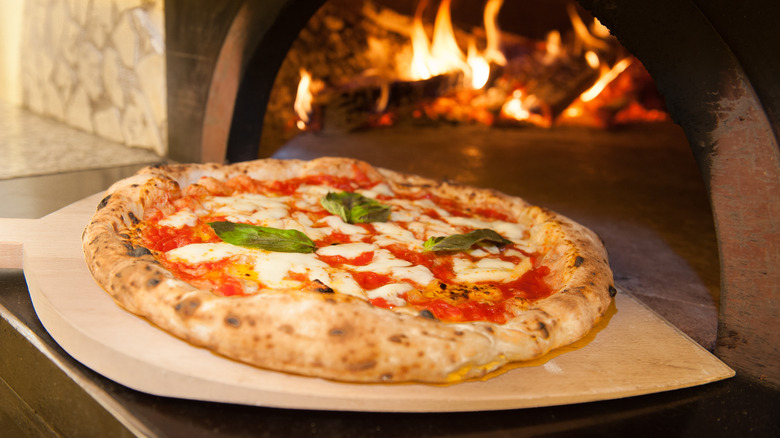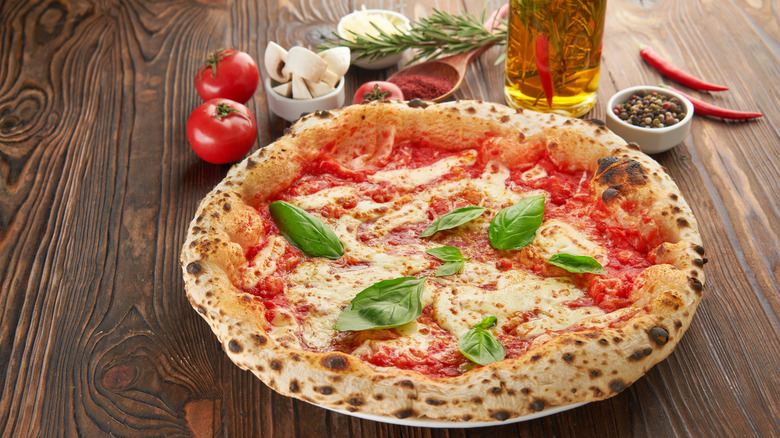What Does It Mean When A Pizza Is VPN Certified?
What makes a good pizza? While any bite of dough, sauce, and cheese that you enjoy can be deemed delicious, there are some specific opinions about exactly what it is that makes a great slice. Some varieties, like New York style, have a thin, crispy crust; Chicago's signature deep dish style is more like a savory cake than a pizza, featuring a bready crust with raised edges; and Sicilian and Detroit style crusts fall somewhere in the middle, according to Webstauraunt Store.
With all the different types of pizza out there, you can imagine how complicated it can get to create universal standards for the perfect pie. There is one organization that has managed to do it, however, and it's called the Associazione Verace Pizza Napoletana, or the Association of True Neapolitan Pizza. Considered the original pizza, Neapolitan pizza comes from Naples, Italy and typically includes a thin crust, tomatoes, mozzarella, basil, and olive oil, explains The Spruce Eats. These pizzas are served whole and often eaten with a knife and fork, however, this is only a preview of the stringent requirements. Let's take a closer look at the criteria for a true Neapolitan pizza and how the Italian association determines a pie's validity.
Certified authentic Neapolitan pizza
If the Associazione Verace Pizza Napoletana (AVPN) decides a pizza is up to par, it's considered VPN certified. This status has nothing to do with your computer's VPN connection — here, the acronym stands for Verace Pizza Napoletana, per the AVPN. To gain access into this highly esteemed club, pizzerias have to meet a litany of specific requirements. First, verified pizzas must be 35 cm in diameter or less and .25 cm thick in the center. In regard to ingredients, wheat flour type "00" or flour type "0" are the only options allowed, along with a little bit of wheat flour type "1." The AVPN also maintains that ingredients should be sourced from the Campania region of Italy (when possible), and even provides a list of preferred suppliers. For a full list of requirements, aspiring pizza makers can access a 21-page document on the association's website.
While Neapolitan pizza originated more than a century ago, the AVPN was founded in 1984 in Naples, according to Italy Magazine, by 17 pizza chefs who wanted to preserve the tradition and authenticity of their beloved pie. Founder Antonio Pace penned the original rules and said he wanted to ensure authentic Neapolitan pizza remained in a world of increasing fast and frozen food, according to the Association. Today, there are almost one thousand VPN certified pizzas available in Italy, the U.S., Australia, and beyond.

